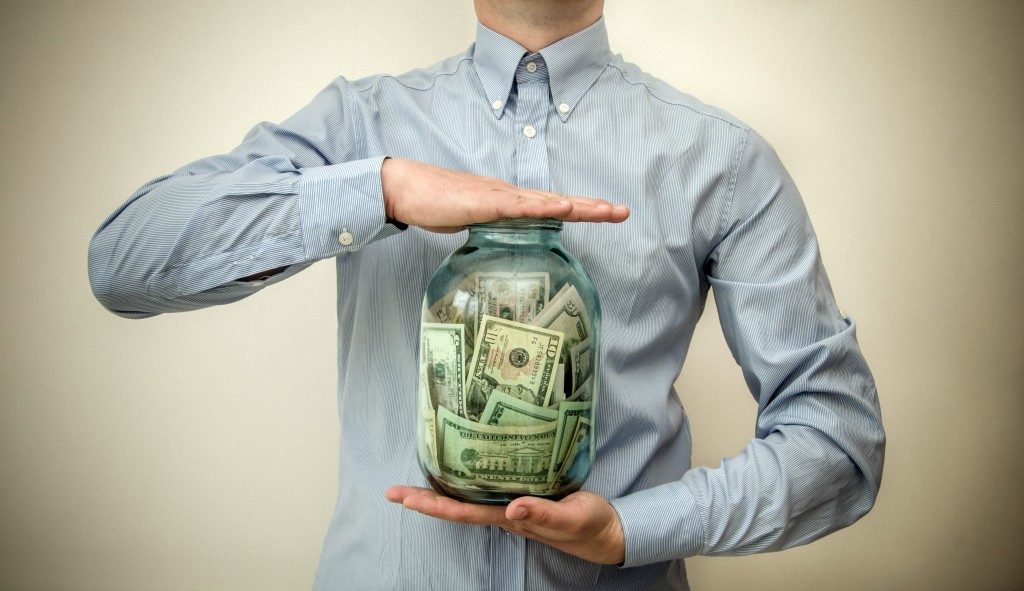We learn from a young age that saving money is important. The money we save could help us get past an unforeseen calamity, medical emergency, or unemployment. Some do it because they want to buy a gaming laptop or a sports car; put a down payment for a house in Tagaytay, or reserve a condo unit in Ortigas. These are dreams they can only achieve by diligently saving.
The desire to spend less and set aside more money towards a goal, however, often leads to saving missteps. Below are three of the most common mistakes people do when they try to save.
Buying in Bulk
Businesses observe economies of scale for a good reason: buying in bulk is cheaper than buying by piece. It’s a smart way to shop. But on the household level, it can only work for a few things. Shampoo, tissue paper, and other items you use daily, for example, are acceptable bulk purchases. Stocking up on perishable food like meat, poultry, and fruits, however, are a bad idea — especially for people living alone.
Be realistic: is buying a bunch of bananas at half-price practical for someone who’ll only eat two or three pieces before the rest goes bad? How many single-servings of mixed green salad would it take to finish three whole chickens?
Consider also that supermarkets often bundle food items and offer them at discounted prices when they’re nearing their expiration date. Four gallons of milk for the price of two, for instance, is impractical if they’re to expire in the next three days. Bulk buying food is a waste of money if they end up spoiled in the fridge or pantry.
Buying Cheap
Savings are not just about the money you don’t spend but the value you get for the amount you pay. Low-priced items aren’t always of the best quality (they’re cheap for a reason), so you end up buying a replacement soon after. Any savings you thought you had would then only be for the short term. BOGO (buy one get one) deals and clearance sales could also provoke you into spending more instead of saving. These deals are irresistible, so many people end up buying things they don’t need.
Putting All Your Savings in an Emergency Fund
Every financial advisor says this: set up an emergency fund that’s worth six months of your average monthly expenses. It is sound advice: finding job openings in the country is easy thanks to online job portals and social media, but our increasingly competitive labor markets have made it difficult to land one. An emergency fund guarantees that you’ll have money for your rent and essentials while in between jobs.
Here’s where many people go wrong: they pour all their savings into their emergency fund accounts, letting their money sit for years without earning decent interest. This is bad because, given the state of the Philippine economy, there’s always a risk of rising inflation rates.
What does inflation have to do with stagnant savings? When inflation goes up, commodity prices go up while the time value of money goes down. This means that instead of getting three loaves of bread for P100, you’ll only have enough to buy two.
With rising inflation, the sum you save today will be worth less in the next months or years. So, instead of keeping your savings in the bank (or worse, in a piggy bank), put them where you can earn significant interest. It’s how you maintain your savings’ value.
These saving practices have their merits, but they can lead you to spend more and get less than what you deserve. There are better and smarter ways to save money, and below are three of them.
The Smarter Ways to Save
 Buy What You Need
Buy What You Need
There’s a reason minimalism is a buzz word these days. Buying and keeping only what we need frees us from clutter and helps us save more.
As discussed above, reserve the bulk buying for non-perishables and brands that have your loyalty. It’s reasonable to buy a P200 bottle of fabric conditioner, for example, or spend P12 for an entire bar of laundry soap than to buy four pieces at P6 each. Regarding food, planning a weekly menu can go a long way to ensuring you buy just the right amount.
Buy Quality Products
Getting great value for your money is an excellent way to save. You can save more if you pay P700 for a pair of shoes that will last two to three years, for example, than buying a P300 pair that falls apart after just a couple of months.
Regarding sales, recall the previous item: buy only what you need. Of all the rules that exist regarding saving, this is the most important. It’s just like what Senator Chiz Escudero said in his wife Heart Evangelista’s viral vlog, “Anything that’s on sale, if you don’t need it, is expensive.”
Invest (On Top of Your Emergency Fund)
Let’s be clear: an emergency fund is a must. To achieve financial security, however, you must also invest. It’s a better use of your savings because you’ll get many benefits in return.
Purchase a life and health insurance plan, especially if you’re a breadwinner with several dependents (e.g., children, elderly parents, siblings with disabilities). The earlier you start, the more affordable your premium will be. Many insurance companies today also allow clients to allocate a percentage of their premiums to stock and bond investments. The investment returns might be lower than if you fully invest in the stock market, but you’ll still earn a yield after ten years (often the minimum maturity period for insurance policies) plus get insurance coverage in case you become disabled or die.
With these three alternatives to saving money, you’ll get better value for every peso you spend and make your savings earn extra for you.


